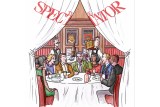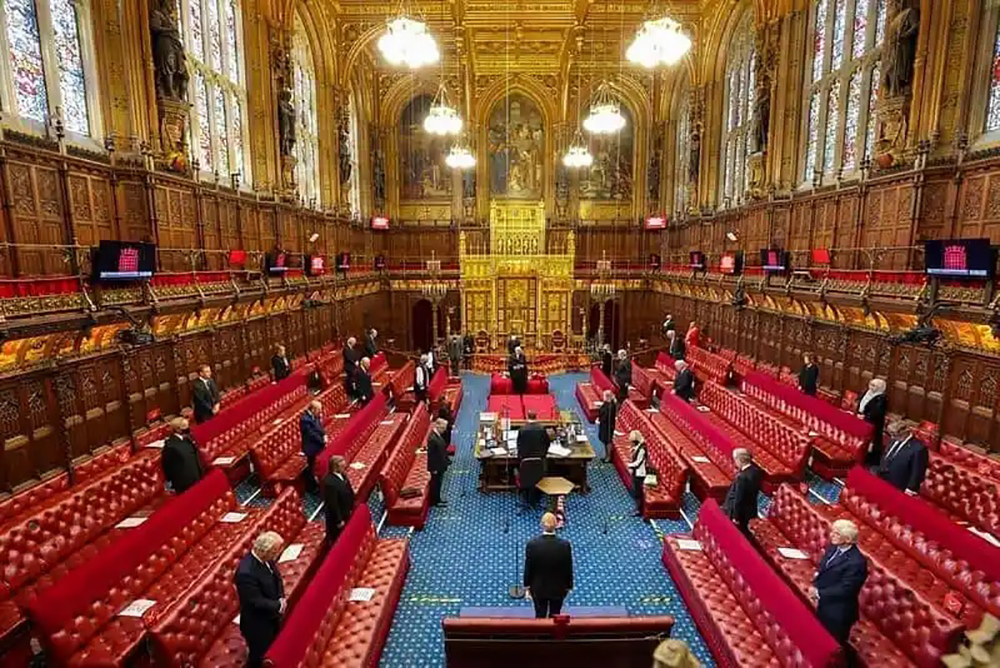
Within a few months, the constitution that has served this country so well for hundreds of years will yet again be vandalised by a Labour government drunk with power. Tony Blair did what damage he could, what with devolution, the Human Rights Act and the creation of the Supreme Court. But Sir Keir Starmer wants to go further. New Labour’s ‘reform’ of the House of Lords, limiting the number of voting hereditaries to just 92, wasn’t spiteful enough, apparently. A bill is being railroaded through that will reduce that rump to zero.
The arguments against this wanton act of destruction should be familiar to most readers. For one thing, the hereds had a better attendance record than life peers in the last parliament – 49 per cent vs 47. For another, many I’ve met forego their daily allowance, so represent better value for money. And their contributions to debates are often far superior to those of commoners like me, particularly in areas where they possess real expertise, such as agriculture and conservation.
But none of these arguments cuts any mustard with the Labour benches, as I’ve witnessed in the past few months. One amendment after another is rejected with stony-faced indifference. We all know the real reason Labour is doing it. Not because the hereditary principle is ‘indefensible’, as it said in the party’s manifesto, but because only four of the remaining hereditaries take the Labour whip, with the majority being Conservative. Once they’ve been consigned to the dustbin of history, Starmer can replace the hereds with Labour apparatchiks and turn the Lords into an echo chamber of the Commons. It’s the worst kind of gerrymandering – permanently wrecking our constitution for partisan political gain.
Insofar as anyone on the Labour side has made an effort to criticise the status quo on philosophical grounds, their arguments were neatly summed up by my colleague Andrew Roberts: ‘It works in practice, but not in theory.’ Some variation of that is nearly always the reason for ‘modernising’ an institution that works well and, taken to its logical conclusion, would be an argument for throwing out the entire constitution. As one Conservative peer pointed out during the debate over the Hereditary Peerages Bill, if you’re opposed to inherited privilege on principle, why stop at the hereditaries? Shouldn’t you scrap the monarchy as well?
One philosophical argument I’m tempted to make in the chamber is that life peers have also inherited their status, so they too should go. After all, they’re a pretty bright lot and IQ is about 50 per cent heritable. Yes, they’re also grafters, mostly, but as the American philosopher John Rawls pointed out, the capacity for hard work is passed down from parents to children via DNA. That’s especially obvious if you look around the chamber, where there are at least 11 ‘nepo peers’ – life peers whose parents were also life peers, like me. In the case of Lord Pitkeathley of Camden Town, his mother, Baroness Pitkeathley, sits beside him on the Labour benches.
Labour is permanently wrecking our constitution for partisan political gain
For Rawls, this was an argument for redistributive taxation – because we’ve done nothing to deserve our natural gifts, we aren’t entitled to keep the income that flows from them. But it’s an equally good argument for life peers to be denuded of their voting rights alongside the hereditaries. Indeed, I’d go further. For the hereds, it’s perfectly obvious they’ve done nothing to deserve their voting rights, which is why they bend over backwards to prove themselves worthy. As Goethe said: ‘What you inherit from your father must first be earned before it’s yours.’ The life peers, by contrast, think of themselves as national treasures who merit their elevated status, which is why they put in fewer hours. In other words, both groups are equally undeserving, but because the hereds are more self-aware and do more to compensate they should be retained and the life peers thrown out.
I don’t suppose that argument will land either. For me, the best reason to keep the hereds is that they’re a living connection to Britain’s past, as well as to the history of the second chamber. Their presence as legislators may not be ‘rational’, but everything about our constitution is gloriously irrational. Far from imposing order and sanity on our system of government, the pinch-browed modernisers are just imposing their own prejudices and in the process removing those bits that work best. The House of Lords doesn’t work in theory – Sir Keir and his hatchet men are right about that. But it works in practice and they should bloody well leave it alone.









Comments